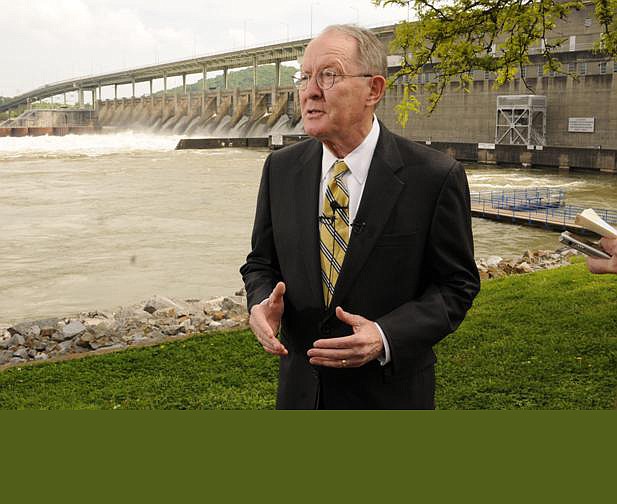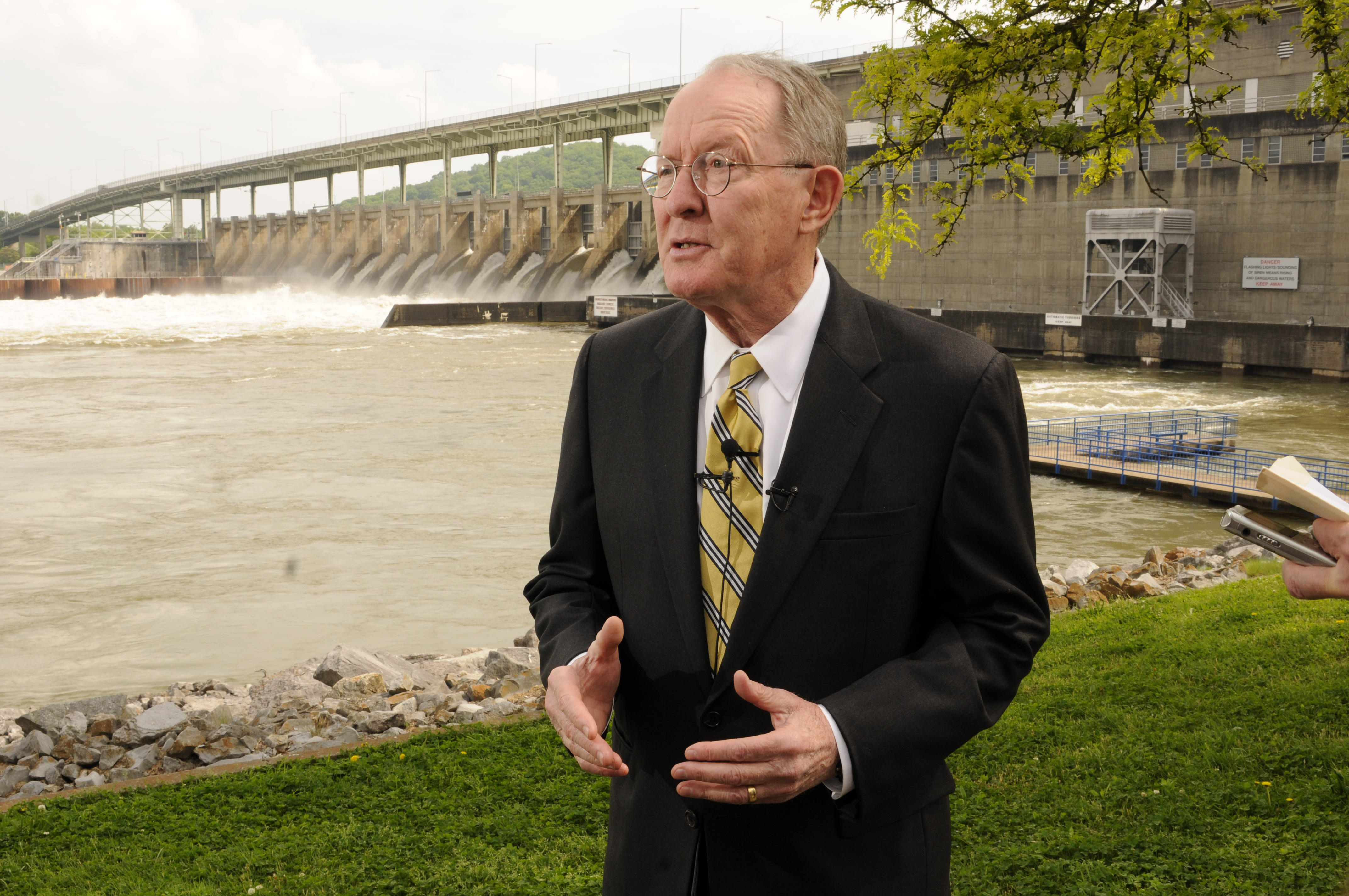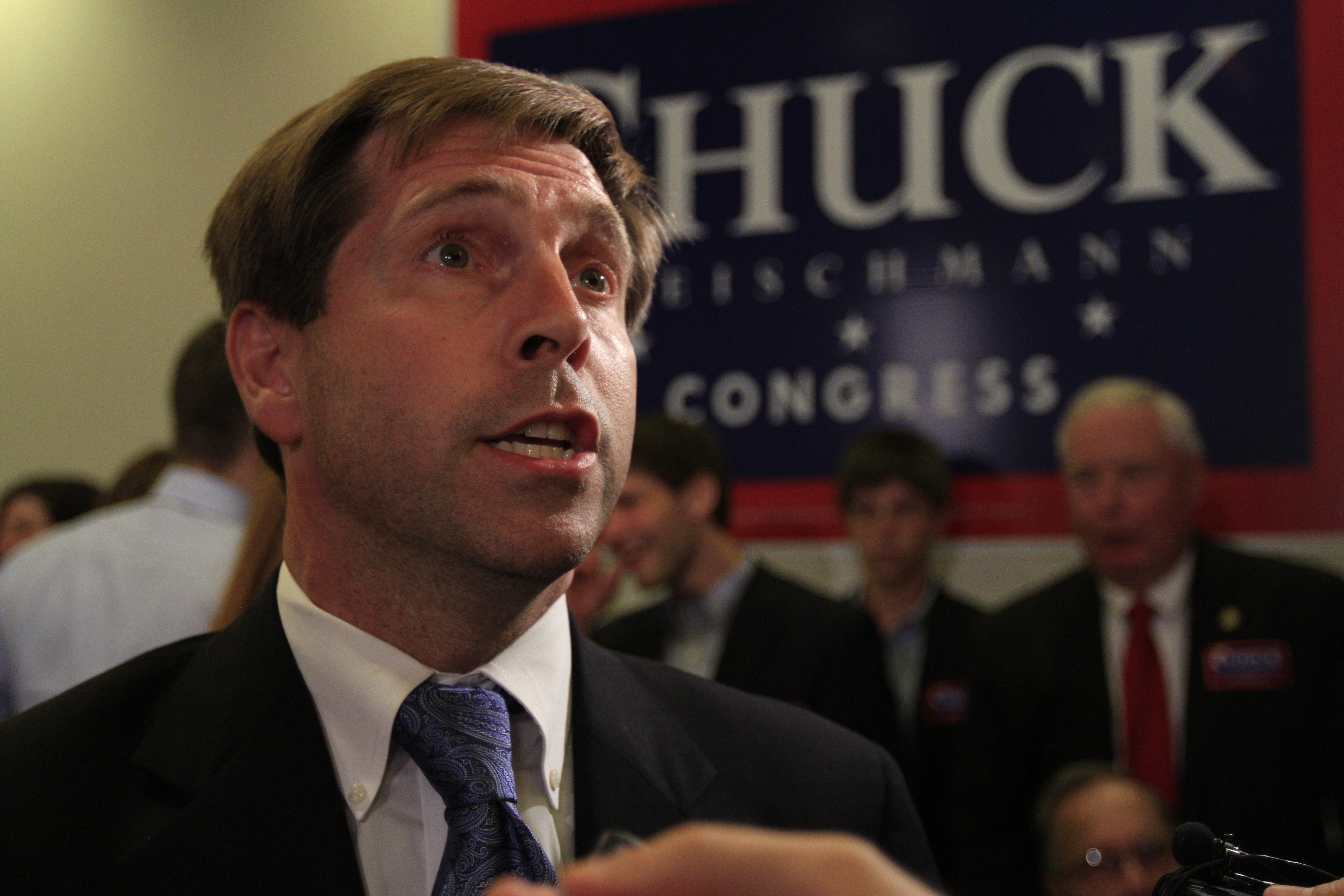U.S. Senate to vote on bill to fund Chickamauga lock repairs
Friday, January 1, 1904
VIDEO
This story is featured in today's TimesFreePress newscast.
WASHINGTON - A bill that could reignite one of Chattanooga's biggest infrastructure projects may pass the Senate as early as this morning. But, as with nearly everything that may clear the upper chamber these days, the latest Chickamauga lock fix faces delay in the House of Representatives.
Senators today are scheduled to pass their version of the Water Resources Development Act, a massive public works bill that authorizes funding for the nation's $18 billion inland-waterway project list. The bill includes language that insiders believe could allow engineers to resume work on an unfinished replacement lock at Chickamauga Dam.
The original lock was built in 1940 and suffers "concrete growth," which could force it to shut down within a few years. Projected to cost more than $600 million after a decade of construction, the new lock would be larger than the existing one and could funnel more freight through the Tennessee River.
Construction has stalled because of lack of money. But U.S. Sen. Lamar Alexander, R-Tenn., visited the vacant Chattanooga work site this month to say this bill will turn things around.
"Fixing Chickamauga lock is essential to creating good jobs for Tennesseans in a competitive world," the former governor said at the time, "and this legislation would accomplish that goal by making such critical infrastructure a priority."
But House hesitation and the bill itself show that new construction is a long way off.
"It's going to take awhile to get through the House," said Senate Environment and Public Works Committee Chairman Barbara Boxer, D-Calif.
TRUST FUND
Right now lock and dam projects are equally funded by taxpayers and the Inland Waterways Trust Fund, which is bankrolled by commercial barge users who pay taxes on each gallon of fuel.
One of the Senate bill's amendments would scrap the half-and-half funding formula for Olmsted Lock, which by some estimates sucks up 90 percent of trust fund revenues. The bill would exclude Olmsted, an over-budget Ohio River project, from the trust fund.
House and Senate aides said removing Olmsted would allow stakeholders to rework the funding formula and reorganize how money goes to different projects.
But you won't find "Chattanooga" or "Chickamauga" in the legislation. That's because of a congressional ban on earmarks, which prohibits members from steering money directly to a project.
Alexander has assured constituents that the Chickamauga lock will benefit from Olmsted's exclusion from trust fund revenues.
But it's unclear how quickly that would occur or where Chickamauga would fall on the priority list. It now comes in at No. 3, according to U.S. Rep. Chuck Fleischmann, an Ooltewah Republican.
NEW TAXES?
Beyond excluding Olmsted, some have said there's not enough money in the lock-and-dam trust fund to finance existing projects.
Several industry leaders, including Debra Colbert of Waterways Council Inc., have advocated higher barge fuel taxes. (The current tax is 20 cents per gallon of fuel.)
But the Senate bill doesn't touch that issue. The legislation describes as "insufficient" the current level of funding, but only says funding "should be addressed" at a later date.
The bill calls for a government study no later than two years after passage that examines the "efficiency of collecting the fuel tax."
Alexander supports the industry's calls for a fresh cash flow. But Fleischmann and other House Republicans oppose the industry's call for higher taxes.
"Before we can ever look at new revenue," Fleischmann said in an interview, "we need to look at [the trust fund's] structure."
OTHER HURDLES
Meanwhile, a top House Transportation and Infrastructure Committee aide said committee members "plan to write their own" water bill, which could lead to a lengthy compromise process with the Senate that may or may not include a Chickamauga lock fix.
"Committee staffs will continue bipartisan discussions," said committee spokesman Jim Billimoria, "but no specific provisions have been ruled in or out at this point."
Fleischmann and House Transportation and Infrastructure Committee Chairman Bill Shuster, R-Pa., are close; the chairman visited Chattanooga last year to visit the lock and raise money for Fleischmann's re-election campaign.
"He saw it firsthand," Fleischmann said in an interview. "My staff and his staff communicate regularly on this."
But even if the current players agree, there's another hurdle: authorization versus appropriation.
The Senate measure only allows the authorization for expenditures on waterways. Congressional appropriations committees will have to approve the actual funding.
But Tennessee is represented there; Alexander is on the Senate Appropriations Committee, and Fleischmann sits on the companion House panel.


